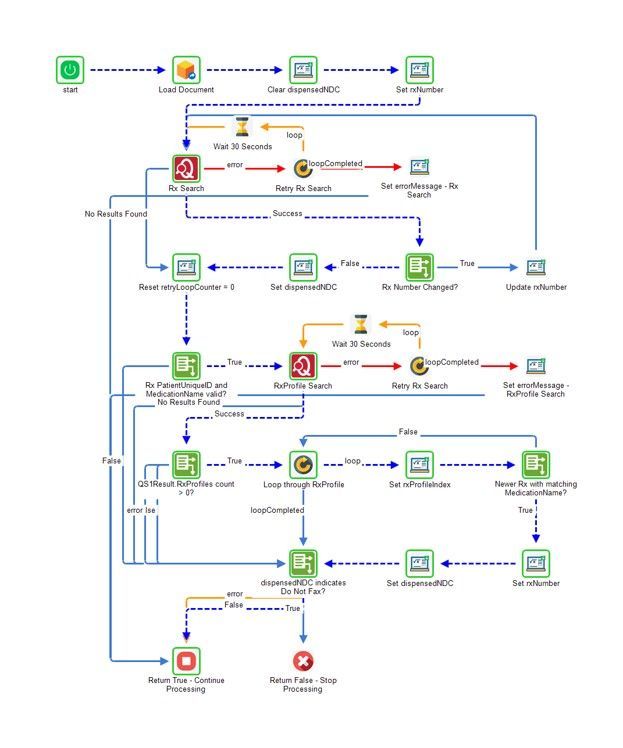The pressure to increase efficiency, reduce costs, and improve accuracy is relentless for companies these days. Teams are turning to automation and AI technology to meet these demands, with one of the most powerful tools being an enterprise workflow automation software platform. So, what exactly is enterprise workflow automation software, and how does it transform business operations? Our team breaks down the core aspects, benefits, and why it's becoming indispensable for modern enterprises.
What is Enterprise Workflow Automation Software?
Enterprise workflow automation software is a technology solution designed to automate repetitive and complex business processes across various departments within an organization. It uses rule-based logic to execute tasks, route documents, and manage information, ensuring that workflows are streamlined, efficient, and error-free. By automating workflows, enterprises can save time, reduce human error, and ensure consistency in their operations.
Key Features of Enterprise Workflow Automation Software
1. Process Mapping + Design:
- Allows users to visually design and map out business processes using drag-and-drop tools.
- Provides a clear representation of workflow steps, decision points, and task assignments.
2. Task Automation:
- Automates repetitive tasks such as data entry, approvals, and notifications.
- Ensures tasks are completed in a timely manner without human intervention.
3. Integration Capabilities:
- Integrates with other enterprise systems such as CRM, ERP, and HRM.
- Facilitates seamless data exchange and process coordination across different platforms.
4. On-Demand Monitoring and Analytics:
- Provides real-time visibility into workflow performance and bottlenecks.
- Offers analytics and reporting tools to measure efficiency and identify areas for improvement.
5. Platform Scalability:
- Designed to handle the increasing complexity and volume of tasks as the business grows.
- Can be customized and scaled to meet the unique needs of the enterprise.
6. Compliance and Security:
- Ensures that workflows adhere to regulatory requirements and organizational policies.
- Protects sensitive data through robust security features and access controls.
Top 5 Benefits of Enterprise Workflow Automation Software for Teams
1. Increased Efficiency and Productivity: With the ability to automate manual and repetitive tasks, employees can focus on higher-value activities that require human intelligence and creativity. This leads to significant productivity gains and allows the organization to operate more efficiently.
2. Increased Accuracy and Consistency: Automation eliminates the risk of human error, ensuring that tasks are performed accurately and consistently every time. This is particularly important in processes that involve data entry, financial transactions, and compliance-related tasks.
3. Enhanced Visibility/Control: Workflow automation provides on-demand insights into process performance, enabling managers to monitor progress, identify bottlenecks, and make data-driven decisions. This level of visibility and control helps in maintaining high standards of quality and efficiency.
4. Overhead Cost Reduction: Automating workflows reduces the need for manual intervention, which can lower labor costs and minimize the expenses associated with errors and rework. Additionally, it can help optimize resource allocation and reduce operational overheads.
5. Faster Turn-around Times: Automated workflows ensure that tasks are completed promptly, reducing delays and improving turnaround times. This is particularly beneficial in customer-facing processes, where speed and responsiveness are critical to customer satisfaction.
6. Better Compliance and Risk Management: Enterprise workflow automation software helps ensure that processes comply with industry regulations and internal policies. It can automatically enforce rules, maintain audit trails, and generate compliance reports, thereby reducing the risk of non-compliance and associated penalties.
Examples of Enterprise Workflow Automation for Teams
1. Human Resources (HR): In HR, workflow automation can streamline processes such as employee onboarding, leave requests, performance evaluations, and payroll management. Automated workflows ensure that these processes are completed efficiently and consistently, enhancing the overall employee experience.
2. Finance and Accounting: Finance departments can benefit from automation by automating processes such as invoicing, expense management, financial reporting, and audit compliance. This not only improves accuracy but also speeds up financial operations, contributing to better financial management.
3. Customer Service: Workflow automation in customer service can automate ticketing systems, route inquiries to the appropriate departments, and track resolution times. This ensures that customer issues are addressed promptly and efficiently, improving customer satisfaction and loyalty.
4. Sales and Marketing: In sales and marketing, automated workflows can manage lead generation, nurturing, and conversion processes. They can also automate campaign management, tracking, and reporting, allowing teams to focus on strategic activities that drive growth.
5. IT and Operations: IT departments can use workflow automation to manage service requests, incident responses, and system maintenance tasks. This helps in maintaining system uptime, improving response times, and ensuring operational continuity.
Things to Consider When Evaluating Enterprise Workflow Automation Software Platforms
When selecting enterprise workflow automation software, it’s important to consider the following factors:
- Ease of Use: The software should have an intuitive interface that allows users to design and manage workflows without extensive technical knowledge.
- Customization: It should offer flexibility to customize workflows to meet the unique needs of your organization.
- Integration: The software should seamlessly integrate with your existing systems and applications.
- Scalability: Ensure that the solution can scale with your business as it grows.
- Support and Training: Choose a provider that offers robust support and training resources to help you get the most out of the software.
Enterprise workflow automation software is a necessary platform that can transform business operations by increasing efficiency, reducing costs, and improving accuracy. FlowWright allows teams to create complex workflows so businesses can enhance productivity, ensure compliance, and maintain a competitive edge in the market. Investing in the right workflow automation solution that will scale for years will be critical for future-proofing teams success.
Keep reading our blog for our latest process management tips, and check out our business process automation software to learn more!







